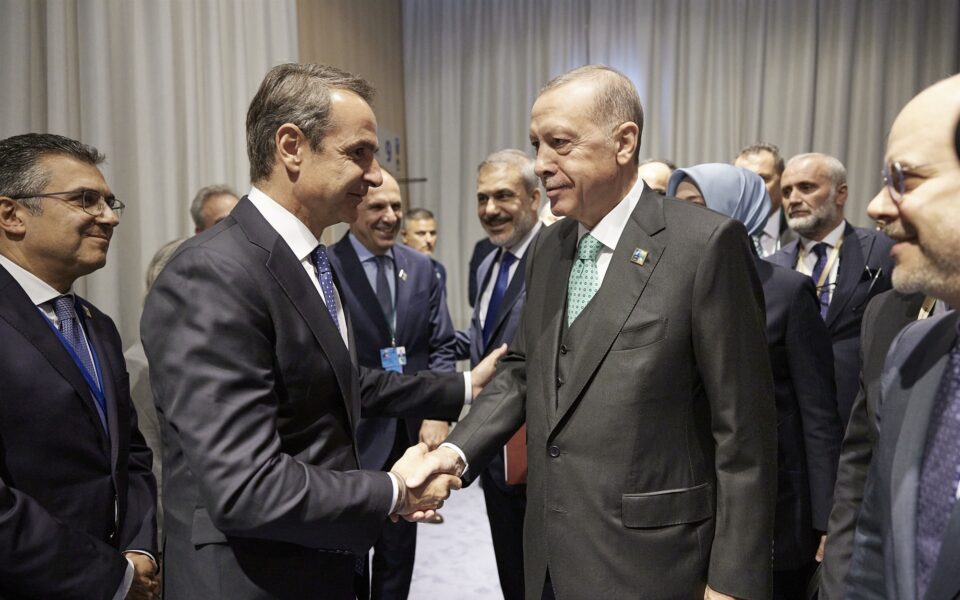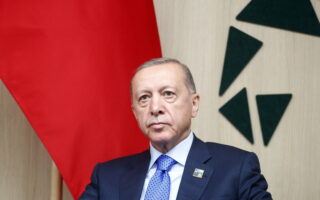Negotiation secrecy and accountability

For the umpteenth time in the history of Greek-Turkish relations an effort is being made to avoid tensions, reach a minimum understanding, cooperate on issues of mutual interest and hold talks on more serious issues.
The two countries are entering this process without having abandoned any of their positions. Turkey insists on disputing almost everything, from the extent of Greece’s airspace to Greek sovereignty on large Aegean islands, expressly referred to in international treaties. For its part, Greece believes that the only existing real point of contention to be resolved is the demarkation of the continental shelf and respective exclusive economic zones (EEZs) in the Aegean and the Eastern Mediterranean.
The positions of the two countries are so far apart that there is no real hope that we can achieve a permanent peace. However, this is a road that we have to follow, as a country. Dialogue and the peaceful resolution of disputes on the basis of international law has been Greece’s strategic choice, at least since 1974. War is not a way to resolve disputes; it is the ultimate means of safeguarding our freedom and territorial sovereignty. On the contrary, Turkey believes that issues can be solved militarily, as well. It has illegally invaded three neighboring states (Cyprus, Iraq, Syria) and continues to maintain troops there.
The chasm between the two countries’ positions is a fundamental problem. Another, crucial problem of practical import is the prevailing understanding in our country about what a diplomatic negotiation is. A diplomatic negotiation consists of two elements: the secrecy of the process and accountability at the end. The goals of the negotiation will be set by the democratically elected government. The negotiations will be conducted by experts; they will be responsible for tactics. The political leadership will monitor the process and will make the final decision whether to accept, amend or reject the outcome of the negotiation. The decision will be submitted to the Parliament for its ultimate approval.
There is a fine balance to be achieved. Even two or three words in the final text could make a big difference
Let’s dwell on process secrecy. Diplomatic negotiations, especially for very complicated issues such as the Greek-Turkish disputes, must take place in secret. There is a fine balance to be achieved. Even two or three words in the final text could make a big difference. For example, Turkey appears to have long accepted seeking international arbitration about the demarcation of the continental shelf, provided that the document mutually agreeing to such arbitration includes “other relevant matters.” These three, seemingly innocuous words, open the door to disputing territorial sovereignty in the Aegean. When the dispute reaches the International Court, Turkey will say that a precondition for the demarcation will be knowing who the islands belong to. So, we will be dragged into discussing sovereignty.
Unfortunately, negotiation secrecy faces two hurdles in Greece. First, leaks about what has transpired in bilateral talks spring fairly quickly. Second, many think that the process is an open negotiation that must take place under the glare of publicity. If the information that becomes available is not “adequate,” we create it. Already, following the meeting between the two countries’ leaders in Vilnius, a very preliminary one, after months of very sharp verbal tension, where we are still feeling our way toward a political dialogue with Turkey, incredible things were heard. We saw relentless speculation from experts, real or imagined, on the internet and TV. We also saw the main opposition SYRIZA wondering whether a purely legal dispute such as the demarcation of the continental shelf and EEZs has a geopolitical dimension. Obviously, they missed the “geo-” part.
Angelos Syrigos is a New Democracy MP and associate professor of international law and foreign policy at Panteion University in Athens.





